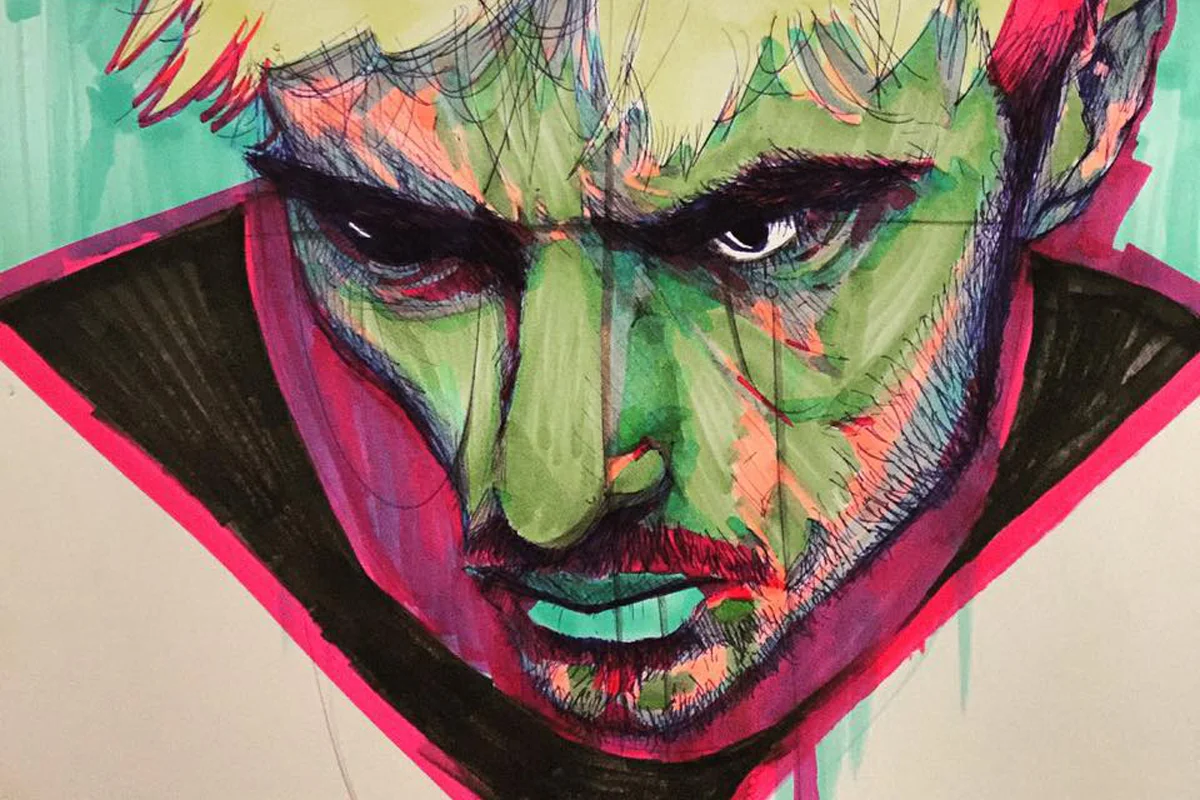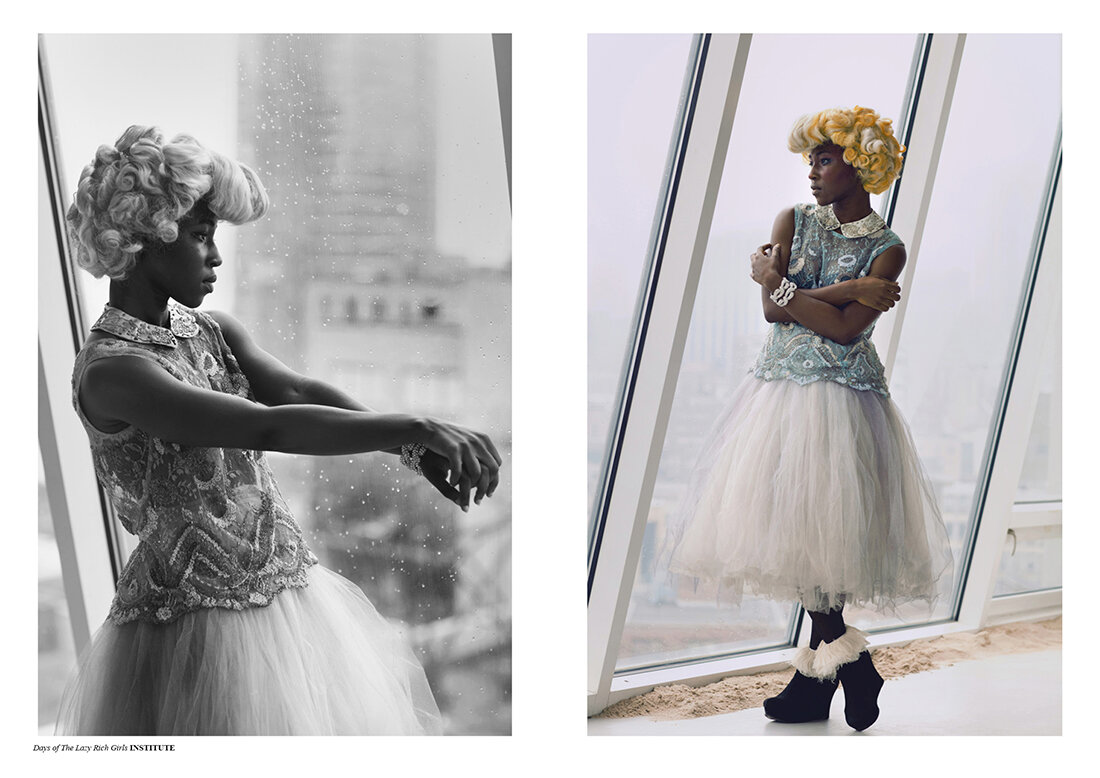Transgender and autistic: I know who I am
Is being autistic more common among those with gender dysphoria? Or do autistics wrongfully identify as transgender due to their autism? Everyone seems to have an opinion, but maybe the question should be first and foremost asked to those who actually are autistic, and transgender.
[Guest Article]
I’m Mitchi. A transgender autistic, 18 year old music producer from the UK.
I was diagnosed with Asperger’s Syndrome (Editor’s note: In 2013 the DSM-5 removed Asperger’s Syndrome from their manual. Asperger’s Syndrome now falls under Autism Spectrum Disorder) when I was 12, and it seemed to explain a lot of things about myself that I considered ‘strange’. However, even after many hours of research, there were still traits about myself that I didn’t understand.
I’ve always shown signs of suffering with gender dysphoria. I never really managed to fit in with the traditional groups at school, and I always hated being referred to by my sex. I thought it was a simple phase and it would pass quickly. It didn’t. If anything, it got worse. I started getting upset if I felt people expected me to act masculine, or when I got dirty looks for being particularly feminine in the way I do things. But again, I kept it balled up inside with the thought that everyone else goes through the same thing and I’ll be over it soon.
(Editor’s note: Gender Dysphoria; the distress a person experiences as a result of the sex and gender they were assigned at birth. In this case, the assigned sex and gender do not match the person’s gender identity.)
Eventually, when I went to college, this ball of frustration was getting too big. I suffered from depression. I guess it was visible on the outside, as people kept asking if I was alright, and it was at that point that I opened up. So only since recently, I’ve been sharing with those around me that I’ve had my fair share of suicide attempts and that I found it upsetting that I struggled with things everyone else seemed to enjoy.
My teacher told me our college gives free counselling to anyone that needs it. So, I headed down to the counselling room and introduced myself to the lovely lady who worked there. After explaining my problems, we agreed to meet up once a week for regular check-ups on my well-being. On one of the final weeks of that academic year, I spoke about how strange it felt when people used very gender-specific terms to get my attention. (“Boy with the purple bag”, “young man over there”, that kind of thing) I then went deeper into my feelings towards this whole ‘gender’ thing. My counsellor suggested that I might be gender-fluid - something I’d never even heard of.
‘Gender-fluid’ refers to someone who frequently ‘switches’ between being male and female. It’s commonly taken as a sign of someone being mentally unstable, but it’s actually much deeper than “Oh, I feel like being a girl today”. Most people whose gender aligns with their biological sex can agree that something in their brain says that they are a boy or girl, man or woman. Someone who is gender-fluid hasn’t got that sense of personal identity relating to just one gender.
My counsellor gave the basic rundown of what gender-fluidity was, and I left that room feeling happier than I had ever been. I was finally learning about myself.
I continued living, now identifying as gender-fluid, and I started doing research on the subject of gender dysphoria. My mind was blown by how many other people suffered with the same sort of thing and eventually I learned about different genders and their meanings.
I kept thinking about it, summarising everything I knew in my head. I realised I couldn’t remember the last time I actually wanted to be referred to as male. My Mum was in the loop since she read my blog that I do on my personal website and of course she was happy with whatever I thought was the right choice.
A few nights later, she woke me up by giving me a post-it note with the name of a programme I should watch that was on BBC iPlayer called Louis Theroux, Transgender Kids. When I was ready, I booted up the computer and began watching it. It was pretty good and it was then that I truly understood what I’d been experiencing; never truly being comfortable with my natural sex. Constantly feeling overwhelmed if I was ever asked to condense my gender to one word. It suddenly all made sense.
Later that day, I spoke to Mum again about my feelings, and she said she supported me 100%. From that moment, I’ve felt free to be myself not constrained by my body or the expectations that came with being assigned male at birth. Mum spoke with the rest of the family and ran things through without me having to be there. So the rest of my family knew what would upset me and what wouldn’t. (Mums are great aren’t they!)
I understand there’s a lot of controversy around the topic, but I figured it shouldn’t hold me back from being me, even though many people in society believe that God hates transgenders. My entire family is Christian. I personally am not religious, but my Mum confirmed that, in the bible, God loves everyone. Religion doesn’t really make sense to me, but I don’t judge people who believe or tell them that they’re wrong about their subjective opinions and beliefs.
I know for a fact that I always used to struggle to find the words when I was asked if I was a boy or girl. Not because I was too young, but simply because I didn’t like the answer. I knew what the ‘right’ response was. But something felt wrong about saying “I’m a boy.” I just stood there, confused, questioning myself more and more each time I was asked what my gender is. It seems that autism and transgenderism could have some kind of unexplained connection. Recent studies have found that transgenderism is more common among autistics.
“As studies investigating the co-occurrence (or correlation) between gender dysphoria and autism spectrum disorder (ASD) have trickled in, there is a growing consensus in the medical community that the two do co-occur at disproportionate rates. This consensus is based on numerous studies reporting that gender-dysphoric youth are more likely to be autistic than would be expected based on autism rates in the general population. (This may also hold true for adults, although the research on adults is sparser.) This co-occurrence has implications for the treatment of both gender dysphoria and autism in young people, and hints at a connection between the biological causes of both transgender identity and ASD.”
It’s totally understandable that the idea of gender complications causes panic and that it has caused controversy, as mentioned by the National Post in the article below.
“A prominent but controversial Canadian psychologist claims autistic traits of “fixating” on issues could convince children they are the wrong sex. In a new BBC documentary, Dr. Kenneth Zucker, hastily dismissed two years ago from his 30-year directorship of the gender-identity clinic at Toronto’s Centre for Addiction and Mental Health, said children identifying as transgender often display autistic tendencies.”
I can see where the controversial Canadian psychologist is coming from: it’s true that autistics tend to ‘fixate’ on different issues. However, I was only introduced to the idea of being gender-dysphoric after I’d been diagnosed as autistic for years, showed several signs of gender dysphoria, and started talking about my feelings myself. So I think it’s up to the parent to recognise if the child has shown any traits of suffering from gender dysphoria, and if they do and communicate this, talk about, possibly with a doctor too.
If we don’t open our minds up to diversity and allow acceptance, then we won’t be making any progress. That same principle can be applied to many other movements that cause controversy. Even movements outside of the LGBTQ+ umbrella. It’s all about pushing the limits of what we know, in my personal opinion.
After I ‘came out’ publicly, many childhood friends stepped forth and said I definitely showed signs of being unhappy with my ‘birth gender’ before. My best friend sent me a message saying that she was deeply sorry regarding one time when we were playing in my bedroom and she referred to me as male. Apparently I looked completely uncomfortable and even froze for a few seconds. She said this probably only contributed to my depression and made the situation worse. But if anything, it’s probably good that it’s not a recent thing. It’s just more proof that this isn’t just a phase. And to me, that’s important.
As teenagers, we go through phases and have many different feelings towards ourselves. In my opinion, being autistic only amplifies these effects and makes the situation even more difficult to handle. Hearing from multiple people that it’s wasn’t a sudden change in me and that I’ve been showing signs of being transgender (even when none of us knew what it meant) for years, was a huge relief to me.
Those of us with autism can safely say that we question ourselves on a frequent basis, and many on the LGBTQ+ spectrum do so too. “Is this me?” “Am I weird for being like this?” “Is this just a phase?”… The answers can only come in their own time, but it’s not completely outlandish that you are on both spectrums somehow.
College has given me plenty of good advice on dealing with my situation. They’ve given advice on who to talk to, places to find others going through the same thing, and taught me the general feelings of others towards people suffering gender dysphoria. Not everyone accepts it, which is fine, provided they don’t cross the line and start trans-bashing. (The act of shaming or victimising transgenders)
When someone with different views finds out you are transgender, they might do everything they can to make you feel insecure about it. Don’t give in to it. Don’t let them hold you back. Do your own research and make-up your own mind. It’s your body and life. They might say things to hurt you but be sure to be the bigger person. If people try their hardest to bring you down, I would suggest you find and stick to communities who fully support you. Strength in numbers. Being part of a community that supports you, also helps you learn about your own boundaries.
People sometimes blame the internet for why depression is such a big thing amongst teens today. To me, it’s rather the media, and society as a whole. I believe kids feel pressured into thinking they have to fit in with everyone else. When they try to fit in when they know they don’t, it means they’re wasting their childhood doing what everyone else does. When you get into your late teen years, you start to realize how much time you’ve lost doing that; how much of your life you’ve wasted trying to fit in and change yourself. You realize that all of the supposedly easiest and fun parts of your life are over. Now, you have to think about jobs and career paths.
I can tell you first hand that being told during your childhood you can’t express your true feelings, because you’re ‘too weird’, is damaging for your mental health. Being transgender isn’t easy. Being on the LGBTQ scale at all is difficult. Adults try to get their kids to look and behave ‘normal’. The child picks up on that, and some due to it, make fun of anyone not like them. The issue concerning depression among teenagers is not the internet - which is merely a tool used to inflict abuse when it comes to bullying - it’s the people who blame depression on the internet and make youths question themselves and their identity, who are the real problem.
Follow Mitchi on Twitter
Written by Mitchi
Editor: Pieke Roelofs
PhotoandGrime.com does not display third party advertisements because we believe information and knowledge that informs or protects the public, should be (clutter)free.
If you found this article informative and want to support the website, consider sharing it!
You can also show support by becoming a Patron or by buying a coffee.






